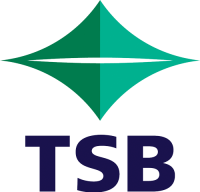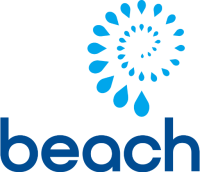Cape Egmont Taranaki
From call out to launching in under 20 minutes
Local crew and local knowledge
6 skippers with over 85 years combined SAR experience
Boat range of 400NM (741km)
Welcome to Cape Egmont Sea Rescue. It’s over fifty years since some fellows met at the Okato pub to talk about rescue. Since then, we have been involved in many incidents. Fishing boats, yachts, and plenty of meetings are all over the place.
We are proud to have our own rescue boat, a large committee, a highly trained crew, six trained skippers, all volunteers dedicated to saving lives.
Here at the Cape, local farmers have been offering a trained, structured response to Maritime Search and Rescue call outs for the past 50 years. We have gone through various name changes, until finally Cape Egmont Sea Rescue Trust was brought in to being in 2009.
Our biggest asset is our local knowledge; sea conditions, coastal topography, tidal movements and weather patterns. Our six senior skippers have over 85 years of SAR experience between them and many more years of boat handling in the notoriously rough, changeable waters off Cape Egmont. All of our 20 volunteer crew are used to being out in heavy seas. If you waited for a flat calm day to go fishing on the Cape, you’d never get out much.
In the mid 1960’s a couple of cow cockies from the Cape Egmont Boat Club realised when boats got in trouble locally, it was a long wait for help to arrive. They decided to fix the problem.
Back then, the 17ft recreational fishing boat “Aquarius” was the star of the show. The crew of local farmers would race from cowshed to boat ramp whenever they got that phone call – someone’s missing off The Cape.
Fast forward to 2013 and Cape Egmont Sea Rescue Trust has grown into a highly respected, independent and thriving organisation. We have a $900,000 state of the art purpose built Lavranos design rescue craft, “TSB Sea Rescue”, a dedicated and skilled volunteer crew of 20 men and women and 10 non-crew volunteers working hard in the background.
We train specifically for rescues in the harsh sea conditions prevalent here at the Cape, the most trafficked area by sea and air on the West Coast of New Zealand. We work closely with the police, the rescue helicopter, Taranaki Air Patrol, Surf Life Saving, Coastguard Taranaki from New Plymouth, and South Taranaki Coastguard.
TSB Bank Sea Rescue was delivered in March 2011 after three years of fundraising and an 18 month build. She is now valued at $900,000. We needed a serious offshore rescue craft, so chose Bladerunner Boats in Auckland after noting they had built some very successful rescue vessels in South Africa, and trying out a Bladerunner boat locally.
We requested a special design of fairly shallow draught to allow launching in the boat ramp during low tides, yet steep-vee forward hull sections to maximise boat stability and crew comfort in rough conditions. Our black and yellow livery is, of course, the provincial colours of Taranaki.
She is built to Maritime New Zealand Survey standards which meant several extras, including four separators to remove salt spray from the engine instead of two, and bulwarks raised to 850mm to qualify for the distance we go offshore.
TSB Sea Rescue is designed for helicopter transfers at sea, so we can ferry casualties back to shore while the chopper stays at the scene if necessary.
The two 270hp four-cylinder Volvo diesel engines power the boat through duoprop stern legs (propellers). Jet units are not suitable for launching in the boat race due to the danger of becoming disabled when seaweed gets sucked through.
Extra manoeuvrability is provided by electric bow thrusters; however TSB Sea Rescue is very nimble and can turn around in the boat ramp without them.
There is excellent information on boating safety on the Coastguard New Zealand website. Of course, your boat is in good nick, you have enough fuel, your motor runs well and your boat battery is fully charged. We’d also like you to think about the following
Test your radio and epirb regularly and make sure all batteries are charged.
Mayday comes from the French “venez m’aider” or “come to my aid”. It is the internationally recognised call for grave or imminent danger. Never “practice” a mayday call on the radio, role play with your crew off air. Using the word “mayday” live on air means you are in big trouble and need help NOW! If you have trouble but it is not a life threatening emergency, make a PanPan call.
If you hear a Mayday call, DO NOT ANSWER unless there is no reply. Start writing down the message in case you have to relay it.
Does your crew know how to read a GPS position or give a bearing? Make sure they do.
On Ch 16. Press and hold down the talk button. Breath once then talk.
MAYDAY, MAYDAY, MAYDAY
THIS IS (boat name)(boat name)(boat name)
ZM Number
MAYDAY
(boat name) ZM Number
Position
Nature of Stress
Assistance Required
# POB
Other information
OVER
(Release button and wait for reply. If nothing in 15 seconds, repeat your message. Make sure you are on CH16. When the Rescue centre replies, press and hold down talk button again, breathe once then talk).
Let go the talk button and wait for reply.
While waiting, prepare flares, life rafts, life jackets, gather emergency supplies, brief your crew. Stay calm and set an example for everyone else to follow.
If you have to abandon ship after your first Mayday call, call back on ch16 to let the Rescue Centre know they will be looking for a liferaft or persons in the water.
Keep a person on standby on the radio for as long as possible.
View the Cape Egmont Boat Race below and also check out the swell and whats happening in town with our Back Beach Cam.
We are seeking new recruits to join the team. You will receive full training and be part of a great crew helping to keep the coast safe!
Thanks to our great supporters



Receive our latest blog posts directly in your inbox!